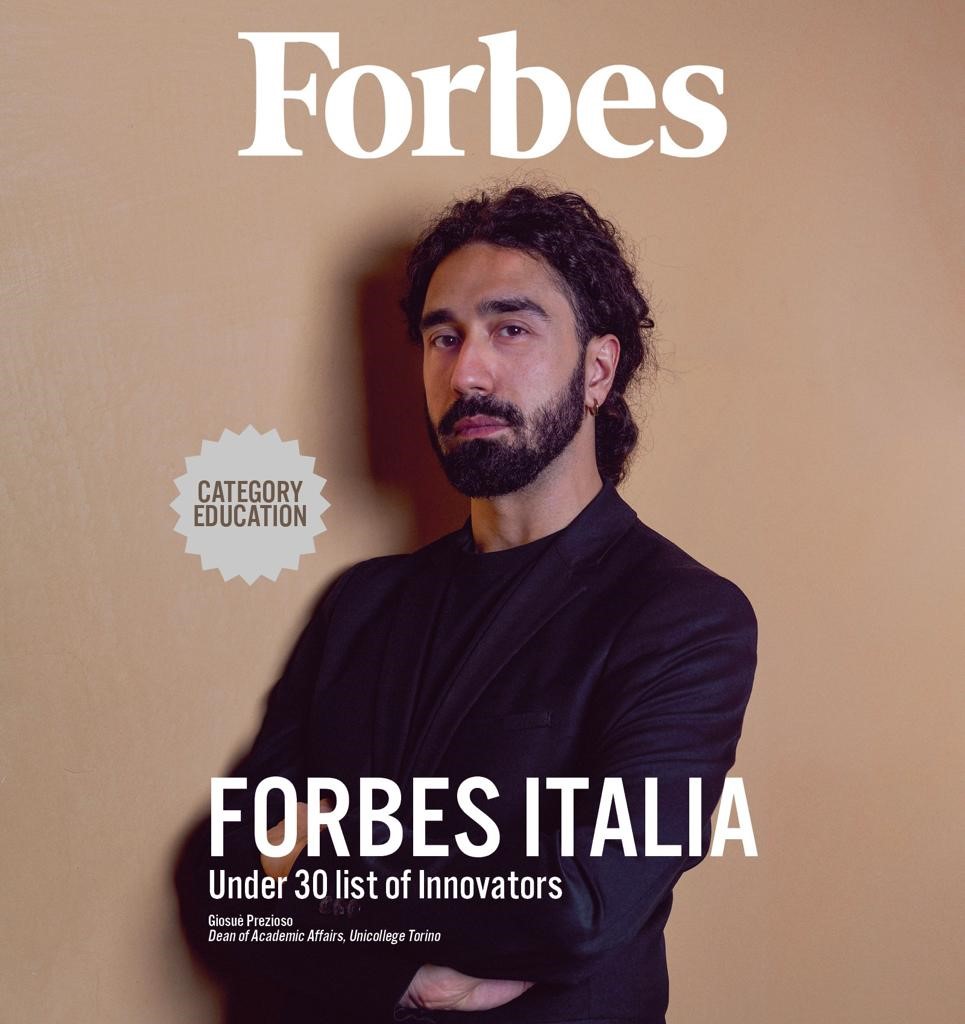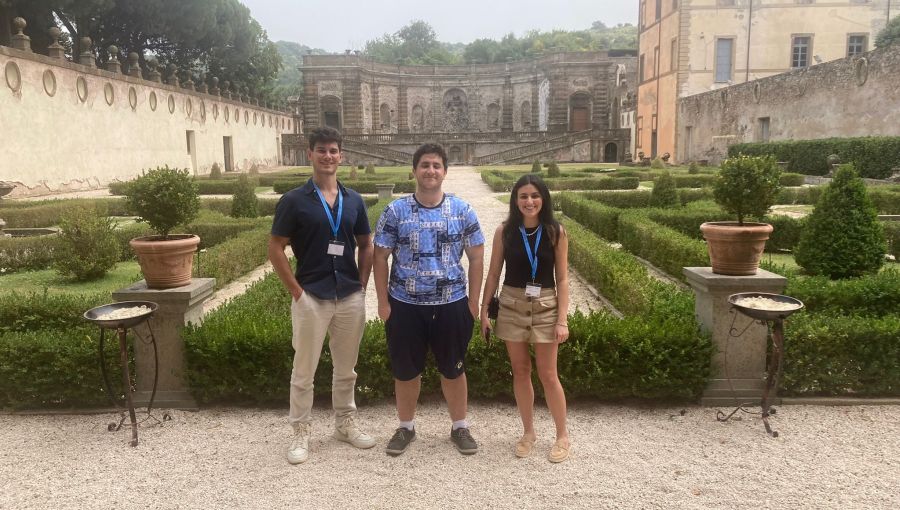Alumnus Giosuè Prezioso Featured in Forbes “30 Under 30 Italy”
Originally from Ostuni, a small town in the southern Italian region of Puglia, Giosuè Prezioso graduated from JCU in 2015 with a B.A. in Art History. He then went on to earn an M.Sc. in Art, Law, and Business from Christie’s in London, and is currently completing his Ph.D. at the University of Reading, while specializing in Education Leadership at the Harvard Graduate School of Education. Giosuè was recently featured in Forbes “30 Under 30 Italy” in the education category.

Giosuè Prezioso
What brought you to Rome and JCU?
Since English was – along with Italian – a family language, I wanted to pursue an international academic experience that could take me to either the U.K., where I had already lived, or the U.S. Before John Cabot, I had started studying in NYC, but then I found out about this unique institution that offered programs in art history, in English, and in Rome. That ‘triangle’ sounded like the perfect plan, and I decided to visit the campus. It really was the perfect recipe, and that was one of my life’s most inspiring and right decisions.
Congratulations on being featured in Forbes “30 Under 30 Italy” in the education category. Tell us about this achievement and what it means to you.
I was the first person in my family to receive a degree. My passion for teaching and academia were somehow a secret, something I could not share with many people in my family. In addition, I come from a ‘queerspawn’ family that had to tackle many socio-cultural discriminations and therefore had little time to dream. I didn’t really think I could be a valid candidate. This achievement therefore means so much to me, and I hope that, by sharing this story, it also means something to those dreamers who come from less privileged backgrounds. Dare!
What made you decide to pursue a career in education?
Upon graduation, I started working at John Cabot’s Foreign Language Resource Center. I am still thankful to Professor Gina Siddu Pilia, the Center Coordinator, for her trust. Simultaneously, I applied to graduate programs, and I was about to start a Ph.D. at Cambridge. While that sounded like a promising plan, I had also applied to Christie’s – the world’s leading art business – but once again, I thought I was not the right candidate. One day, however, I received the email that changed my life: “You have been accepted.” I started my Master of Science in Art, Law, and Business in London (accredited by the University of Glasgow) and traveled across Europe, China, South Korea, Belgium and the world’s art capitals. I also had the rare privilege to work for the Antiquities department at Christie’s, surrounded by ancient Egyptian, Greek, Roman and global artifacts that really boosted my passion and dedication to this world.
I started teaching at international universities when I was only 24. Students, mentors, colleagues, and Deans ranked my classes among the best and my educational career skyrocketed. I taught in countries such as Austria, Egypt, France, Italy, Poland, the U.K., the U.S…. This is how education became my job. I started a Ph.D. in the U.K. and then specialized in Advanced Education Leadership at the Harvard Graduate School of Education. Meanwhile, I even had the honor to teach at an Italian public university at age 28 – becoming among the country’s youngest people to hold that role. I am now Italy’s youngest Dean of Unicollege, an accredited, international university founded in 1975, and that is just something I can’t describe… I’m honored, grateful, thankful.
In your experience, what are the rewards of being an educator?
Teaching is one of those jobs that can really change not only an individual but an entire country. For this reason, I believe we educators need awareness and a sense of responsibility.
I have been teaching internationally for almost 10 years now. I know many students who have become leaders, managers, volunteers… This is a success, and it becomes more so when they email you and they update you, asking to collaborate on a project they manage or created.
How has JCU helped you in your graduate studies and your career?
Just two words to answer: Antonella Salvatore, professor and Director of the Center for Career Services. She is empathetic, greatly experienced, open, fair… She has been a true mentor to me and is really the author of the first chapters of my academic and professional experience. She offered me teaching jobs with John Cabot’s Continuing Education programs and then provided further opportunities that turned into actual positions. Grazie per sempre, Antonella (thank you forever, Antonella).
What made you decide to study Art History? What JCU classes and/or professors impacted you the most and why?
I’ve always had a passion for art, but I’m not an art maker. Art history sounded like the perfect compromise, and today, after over 10 years, I can confirm that it was the right choice for me. I must confess that classes at JCU were very challenging compared to my graduate school experiences at both the master’s and doctoral level. I was intrigued by Professor Lila Yawn’s lectures on Medieval art, which became a passion of mine ever since. I also found Professor Sharon Salvadori’s classes on gender and sexuality applied to art very fresh and forward looking. To be honest, I had meaningful interactions both in and outside of class, with international friends and colleagues: the superb cafeteria manager, Iva; the former Dean of Academic Affairs, Professor Mary Merva… The list could go on further. John Cabot is an immersive learning experience – both academic and human.
What would you say to people who think that there’s no point in studying Art History today?
That they should ask our future enemies number one: machines and technology. While many human processes are gradually becoming automatized and mechanized, art and human creativity are somehow the last that seem to survive. This implies that we’ll need more artists and art experts that will conceptualize, create, and understand human artistic expressions.
Think of Italy: its art and cultural drive is so potent and magnetic that it generates billions of euros in revenue every year. Let’s stop seeing art as the most virtual asset one can invest in and celebrate it as a universal human asset.
What are your plans for the future?
Education. It’s a calling. Can I keep it that short?





